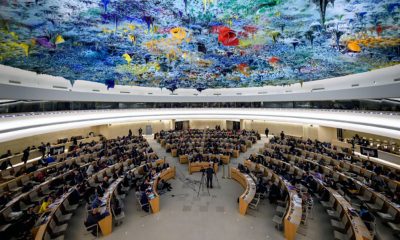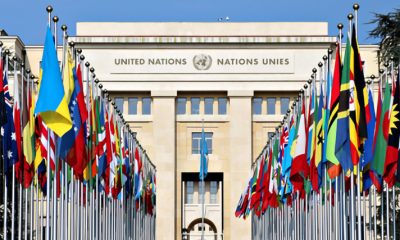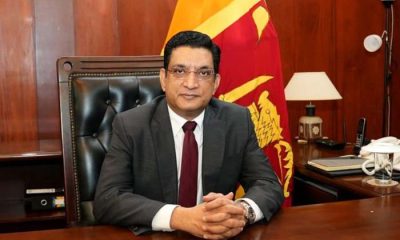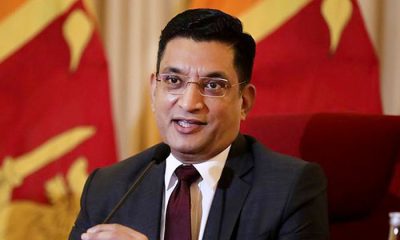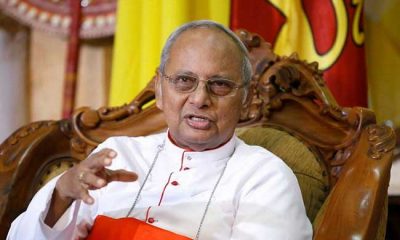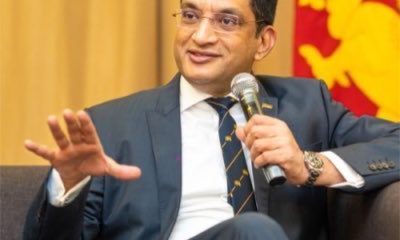News
SL rejects UNHRC resolution
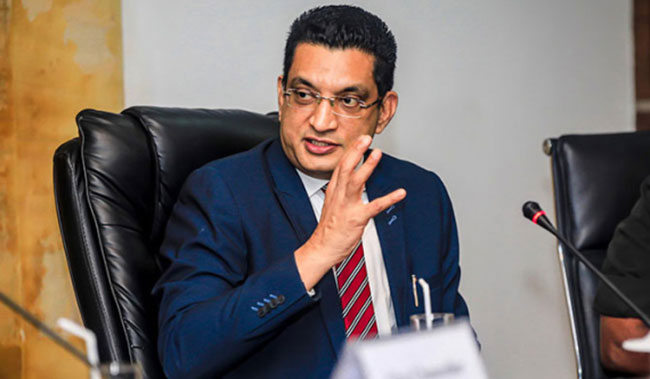
Sri Lanka has categorically rejected resolution A/HRC/51/L.1 (Rev.1), titled “Promoting reconciliation, accountability and human rights in Sri Lanka,” tabled by the United Kingdom, Canada, Germany, Malawi, Montenegro, North Macedonia, and the United States, which was adopted by a vote at the Human Rights Council (HRC) in Geneva, on 06th October.
Minister of Foreign Affairs Ali Sabry delivered the statement, on behalf of Sri Lanka as the country concerned, and called on the Members of the Council to reject the resolution by voting against it.
In support of Sri Lanka’s position, opposing the resolution, the delegation of Pakistan called for a vote. Over half of the members of the Council did not support the resolution with 07 countries (Bolivia, China, Cuba, Eritrea, Pakistan, Uzbekistan and Venezuela) voting against the resolution and 20 countries abstaining on the vote. 20 countries voted in favour of the resolution.Representatives of Pakistan, Brazil, China, Venezuela, Japan and Republic of Korea made statements in support of Sri Lanka prior to the vote.
Pakistan said that they share the concerns of Sri Lanka and other Member States that the resolution is intrusive and this level of scrutiny would not be even acceptable to any sovereign state, including the Core Group. They further observed that the resolution fails to recognize the horrendous acts of terrorism committed by the LTTE and its sponsors, lacks balance, proportionality and consistency. At a critical time, when the people of Sri Lanka expect demonstrations of global solidarity and support to face its economic challenges, which are not entirely of Sri Lanka’s own making, the Core Group chose a path that has the potential to exacerbate the problem, instead of improving the situation.
Brazil noted the need to avoid politicization of the work of the Council and reiterated their position that cooperation of the country concerned is key to the success of this Council’s initiatives. Brazil highlighted the responsibility of the international community to support the country in its recovery, including through international cooperation and assistance.
China appreciated the Government of Sri Lanka’s commitment to promoting and protecting human rights, advancing sustainable socio-economic development, improving living standards, protecting the rights of the vulnerable groups, facilitating national reconciliation and combatting terrorism. China regretted that the resolution is tabled without the consent of the country concerned, is a product of politicization, and will by no means play any positive role in the promotion of human rights in Sri Lanka. China highlighted that the work of the Council should be guided by its founding principles and that all parties should promote genuine dialogue and cooperation and refrain from adopting double standards. China rejected the practice of using human rights as a pretext to interfere in the internal affairs and undermine the sovereignty of other countries to the detriment of international cooperation.
Venezuela expressed their deep concern at initiatives that do not have the support of the country concerned and that the Core Group is insisting on imposing hostile initiative, monitoring and oversight mechanism without the consent of Sri Lanka, ignoring the progress made by the Government. Venezuela highlighted that the mechanism financially bleed out over 6 million dollars that could have been better used to support the least developed countries and further that the practice of wasting money seems all too common in the Council.
Japan recognized the progress made by Sri Lanka and said that the Government’s own initiatives, efforts and commitments are indispensable to achieving real change on the ground.Republic of Korea noted with appreciation the efforts of the Government of Sri Lanka to promote national reconciliation, reconstruction and prosperity.Sri Lanka is grateful to the countries which withstood pressure by the sponsors and demonstrated their support to Sri Lanka by voting against or abstaining on the vote as well as by speaking in support of Sri Lanka.
While delivering the Sri Lanka statement as the country concerned, the Foreign Minister regretted that a draft resolution on Sri Lanka is tabled once again despite the progress made domestically on reconciliation and human rights and Sri Lanka’s continued constructive engagement with the Council. He outlined Sri Lanka’s intention to move forward domestically with replacing the Prevention of Terrorism Act (PTA) with a comprehensive national security legislation, and the introduction of Constitutional amendments and a legal framework to strengthen democratic governance, participation and the rule of law as well as independent institutional oversight. On reconciliation and human rights, Sri Lanka is awaiting the final report of the Presidential Commission and the establishment of a domestic truth-seeking mechanism is under advanced discussion. He also referred to Sri Lanka’s upcoming engagement with the UPR process.
Minister Sabry highlighted that while the resolution may meet the objective of advancing the political considerations of the sponsors, it is manifestly unhelpful to Sri Lanka.The Minister strongly opposed the resolution, particularly the proposal in Operative Paragraph (OP) 8 that seeks to ‘extend and reinforce’ the so-called “external evidence gathering mechanism” created by the Office of the High Commissioner for Human Rights (OHCHR). The mechanism is outside the mandate envisaged for the Council. No sovereign state can accept the superimposition of an external mechanism that runs contrary to its Constitution and which pre-judges the commitment of its domestic legal processes.
The Minister also noted that many countries have already raised serious concerns on the budgetary implications of this resolution given its ever-expanding mandate. He further noted that this is an unhelpful and misdirected drain on the resources of all Member States, including the donors in the midst of ongoing global crises. In sharp contrast, he said that we are faced with the dire financial needs of developing countries to prevent hunger and child malnutrition.
Foreign Minister Sabry objected to the references in the resolution to matters which are outside the framework of the Council such as domestic economic and financial policy. He further observed that solutions to economic and financial crises faced today by many countries will not be found in the mandate, the instruments or the expertise of the Council.
The result of the vote demonstrates that the resolution is another example of the North-South polarization and politicization of the Council, contrary to its founding principles. This vote also demonstrated solidarity among the countries of the South which continued to support the basic founding principles of the Human Rights Council of universality, impartiality, objectivity and non-selectivity leading to constructive international dialogue and cooperation.The Human Rights Council comprises 47 members, including 13 African states, 13 Asia-Pacific states, eight Latin American and Caribbean States, seven Western Europe and Other States, and six Eastern European States.
Latest News
Voting commences to elect members for 339 local government authorities

Voting commenced at 7.00am to elect members to 339 local councils in the island.
Voting is being held at 13,579 polling centers and will end at 4.00 p.m.
Latest News
President holds talks with Vietnamese President

Vietnamese President Luong Cuong warmly welcomed President Anura Kumara Disanayake during an official ceremony held in Hanoi on Monday (05) morning
President Anura Kumara Dissanayake was accorded a ceremonial welcome with full military honours upon his arrival at the Presidential Palace of Vietnam. He also took part in the inspection of the Tri-Forces Guard of Honour and the playing of the national anthems of Vietnam and Sri Lanka. The two leaders then introduced members of their respective delegations before proceeding for bilateral discussions during which both nation assessed their progress, explored avenues for future collaboration and signed Memoranda of Understanding.
Vietnam and Sri Lanka have upheld robust and enduring ties since they established diplomatic relations in 1970. and this visit aims to strengthen political trust and foster effective collaboration across multiple sectors between the two nations.
Sri Lanka and Vietnam engage in annual bilateral trade, primarily in exports, totalling around US$200 million. Both nations aspire to elevate this trade to US$1 billion in the near future.
President Dissanayake’s visit highlights Sri Lanka’s deep commitment to its longstanding friendship with Vietnam and demonstrates a mutual resolve to enhance collaboration in traditional sectors while exploring new opportunities in digital transformation, the digital economy, energy transition, artificial intelligence and connectivity.
[PMD]
Latest News
Heat index is likely to increase up to ‘Caution level’ at some places in Eastern, Northern, North-western, and North-central provinces and Monaragala district

Warm Weather Advisory
Issued by the Natural Hazards Early Warning Centre of the Department of Meteorology At 3.30 p.m. 05 May 2025, valid for 06 May 2025
The public are warned that the Heat index, the temperature felt on human body is likely to increase up to ‘Caution level’ at some places in Eastern, Northern, North-western, and North-central provinces and Monaragala district
The Heat Index Forecast is calculated by using relative humidity and maximum temperature and this is the condition that is felt on your body. This is not the forecast of maximum temperature. It is generated by the Department of Meteorology for the next day period and prepared by using global numerical weather prediction model data.
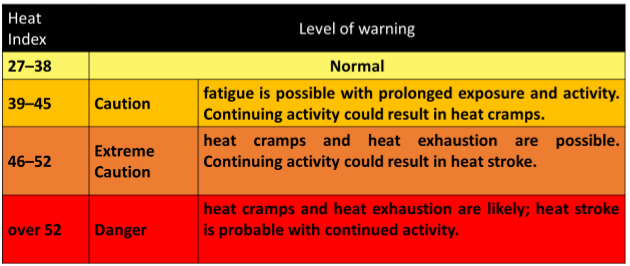
Effect of the heat index on human body is mentioned in the above table and it is prepared on the advice of the Ministry of Health and Indigenous Medical Services.
ACTION REQUIRED
Job sites: Stay hydrated and takes breaks in the shade as often as possible.
Indoors: Check up on the elderly and the sick.
Vehicles: Never leave children unattended.
Outdoors: Limit strenuous outdoor activities, find shade and stay hydrated.
Dress: Wear lightweight and white or light-colored clothing.
Note:
In addition, please refer to advisories issued by the Disaster Preparedness & Response Division, Ministry of Health in this regard as well. For further clarifications please contact 011-7446491.
-

 Sports6 days ago
Sports6 days agoOTRFU Beach Tag Rugby Carnival on 24th May at Port City Colombo
-

 News4 days ago
News4 days agoRanil’s Chief Security Officer transferred to KKS
-

 Opinion2 days ago
Opinion2 days agoRemembering Dr. Samuel Mathew: A Heart that Healed Countless Lives
-

 Features5 days ago
Features5 days agoThe Broken Promise of the Lankan Cinema: Asoka & Swarna’s Thrilling-Melodrama – Part IV
-

 Features6 days ago
Features6 days agoTrump tariffs and their effect on world trade and economy with particular
-

 News5 days ago
News5 days agoRadisson Blu Hotel, Galadari Colombo appoints Marko Janssen as General Manager
-

 Business4 days ago
Business4 days agoCCPI in April 2025 signals a further easing of deflationary conditions
-

 Features5 days ago
Features5 days agoA piece of home at Sri Lankan Musical Night in Dubai



